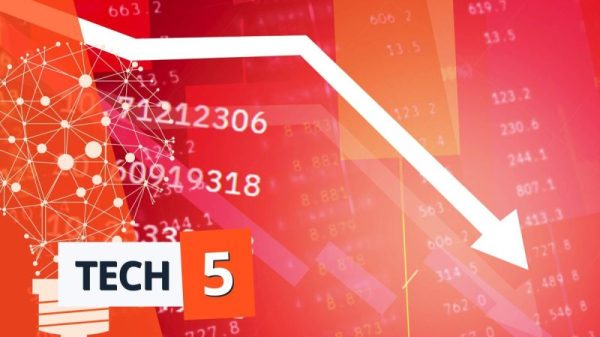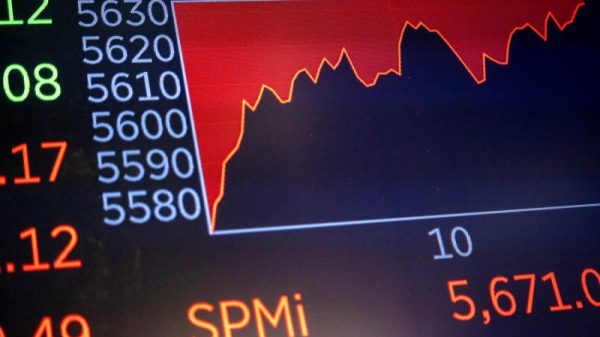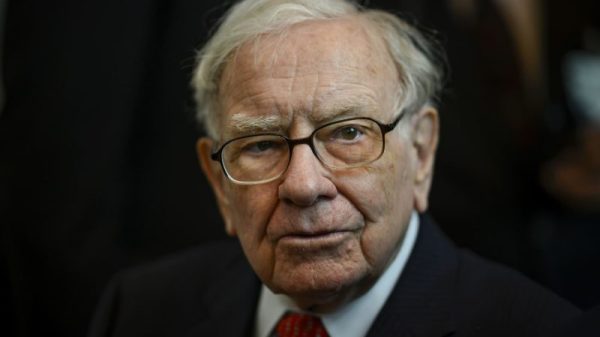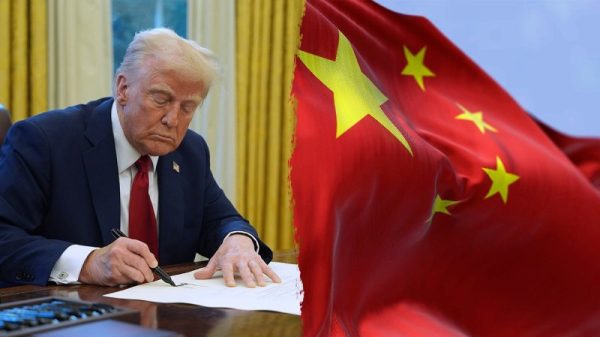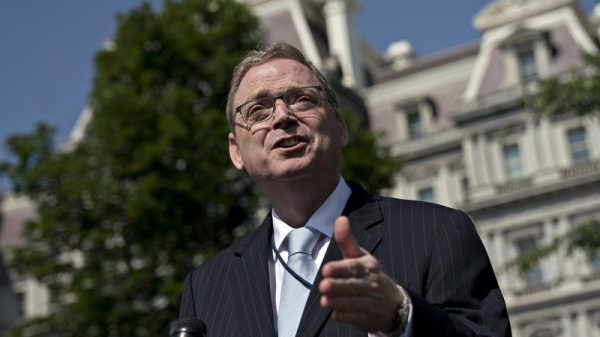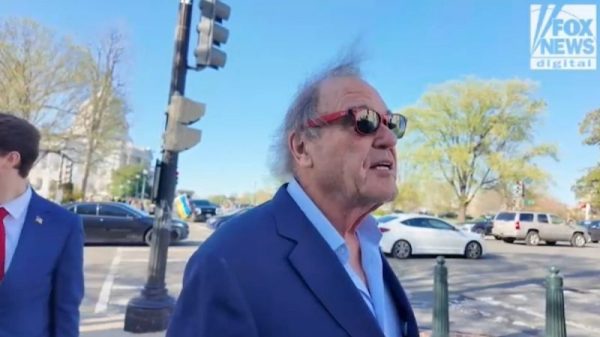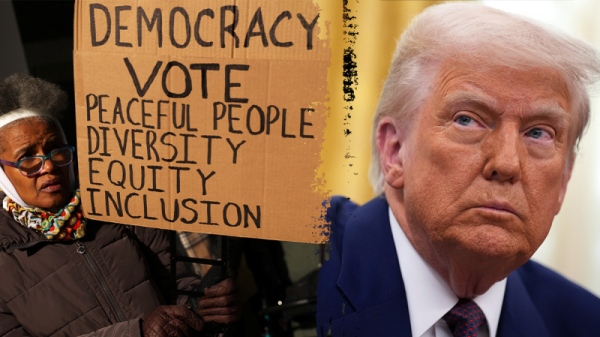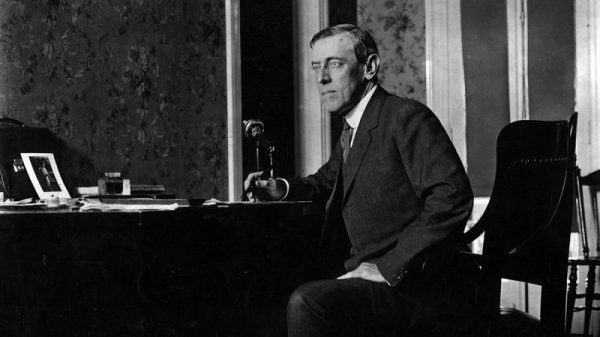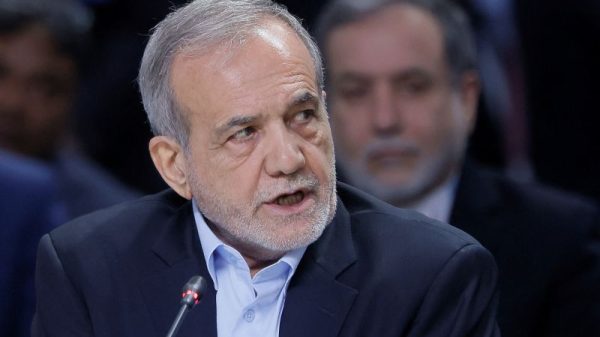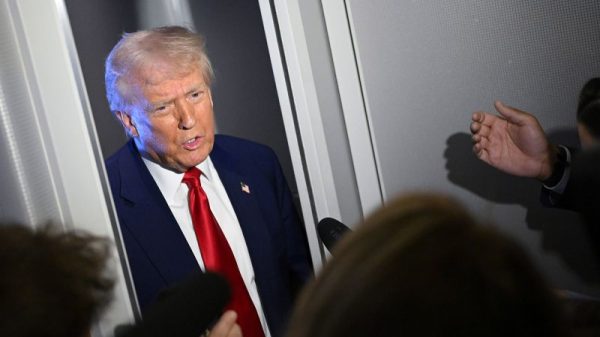In February alone, Donald Trump encouraged Russia “to do whatever the hell they want” to NATO allies that do not contribute sufficiently to the military alliance.
He refused to condemn Russian President Vladimir Putin for the death of Alexei Navalny, 47, a Kremlin critic who died suddenly on Feb. 16 in a Russian penal colony — instead likening himself to Navalny, arguing they were both political prisoners.
And in a Fox News town hall Tuesday evening, he praised Russia for being “a war machine.”
“They defeated Hitler,” Trump declared, apparently referring to the Soviet Union’s role in World War II.
Since announcing his first presidential campaign in 2015, Russia has followed Trump like an unshakable thunder cloud. The former president has repeatedly expressed a fascination with Russia, lavished praise on Putin and refused to stand up to the Russian president on a range of issues — from interfering in the 2016 presidential election to invading Ukraine almost exactly two years ago.
Trump’s reticence to forcefully confront Russia and his regular adulation of Putin have long raised the question: With Trump, why do “all roads lead to Putin?” as then-Speaker Nancy Pelosi (D-Calif.) memorably asked in 2019 during a contentious Cabinet Room meeting.
His latest round of pro-Russian cheerleading raises the same query — but now against a dramatically changed backdrop. The Russia-Ukraine war is entering its third year, with no signs of abating. Putin critics are calling the death of Navalny — who had survived a previous Russian attempt to poison him — a murder. And under Trump’s leadership, the Republican Party has drifted in a remarkably isolationist direction on foreign policy, with House Republicans currently holding up much-needed aid to Ukraine.
“His buddy-buddy — whatever it happens to be — affection with Putin is dangerous — to our transatlantic alliance, to NATO, to our support of people fighting for democracy in Ukraine,” Pelosi said.
“The Navalny assassination is something that is so startling and so blatant, and to see the former president’s comment about it just continues us on the path of: What is his connection to Russia?” Pelosi added.
Both Russia experts and some Trump confidants say the answer is far more straightforward than some of the existing theories, including the theory that the Russians have damaging material — known as kompromat — on Trump and are using it to blackmail him.
Rather, they say, the former president simply likes dictators and strongmen like Putin.
“My explanation is he just likes these big guys who did what they wanted to do, and he wanted to be a big guy who does what he wants to do,” said John Bolton, Trump’s former national security adviser who has since become an outspoken Trump critic.
Bolton described a broad “pattern of behavior,” pointing to Trump’s friendliness and fascination with other authoritarian leaders like Recep Tayyip Erdogan of Turkey, Kim Jong Un of North Korea, Viktor Orban of Hungary and Xi Jinping of China.
Trump, Bolton added, “had difficulty with a lot of democratically elected foreign leaders, particularly women,” and would sometimes refer to Xi as “king” — “because he was so impressive, so much in charge of China,” he said.
Michael McFaul, ambassador to Russia under President Barack Obama, similarly said that Trump admires strongmen leaders, but added that the former president also seems to genuinely share a similar governing philosophy with some of these authoritarians.
“There is a kind of ideological affinity between them, and there’s a kind of transnational movement of these populist nationalists, and the things that Trump says and the things that Putin says are very similar,” McFaul said. “I don’t think it’s just Trump mimicking Putin. I think that’s their shared worldview, and there’s millions of people who have that view.”
A former senior adviser to Trump, speaking on the condition of anonymity to share a candid assessment, added that Trump was simply “envious of dictators.” This person added that “10 times a day, maybe,” he and other top advisers tried to explain to Trump that Putin was dangerous and a threat to U.S. interests, but Trump was taken by Putin’s “tough guy image.”
“Putin and the other ones just worked him,” this person said. “It’s a vanity thing with him. It’s a tough guy thing. As long as you’re playing to those weakness, he’s going to think a lot of you.”
The Trump campaign rejected the notion that the former president was soft in his dealings with Putin. The campaign pointed to recent comments from the Russian president in which he said he preferred President Biden to Trump, describing Biden as “more experienced,” “more predictable” and “an old-school politician.”
“Vladimir Putin recently endorsed Joe Biden for president because he knows Biden is weak and can easily be bullied, as evidenced by Putin’s years-long invasion of Ukraine,” Trump spokeswoman Karoline Leavitt said in a statement. “When President Trump was in the Oval Office, Russia and all of America’s adversaries were deterred, because they feared how the United States would respond.”
Yet Trump and Putin’s relationship remains especially complicated. The U.S. intelligence community, a bipartisan Senate panel and a two-year investigation by special counsel Robert S. Mueller III all found that Russia interfered in the 2016 U.S. presidential election.
Russia’s efforts to interfere were “sweeping and systematic,” Mueller found.
But Trump has refused to acknowledge that reality, repeatedly dismissing it as the “Russia hoax” and a political “witch hunt” meant to hurt him. Some people close to him privately say that he cannot disentangle his personal animosity and feelings of persecution over the fallout from Russia’s election interference with his foreign policy stances toward the country.
“For him, the idea that Russia interfered on his behalf undercuts his great win,” said Fiona Hill, who served as senior director for European and Russian affairs on the National Security Council during the first two years of the Trump administration. “He was always saying, ‘No, no, I won. I had a great win.’ He also didn’t want to be humiliated on behalf of Putin.”
She added: “If Putin actually did say to him, ‘You know, Donald, we did steal the election for you,’ he’d just implode because it undercuts his idea of being a winner.”
Regardless of Trump’s motivations, his policies also have supporters. Justin Logan, director of defense and foreign policy studies at the Cato Institute, described the Biden administration’s stance toward Ukraine as amounting to “a forever war, in practice.”
“A lot of Republican voters are asking themselves, ‘Does the administration or does anybody have a plausible theory of victory here?’ and I think it’s very easy to answer that question in the negative,” Logan said. “We’re just going to keep spending until Russia is bled white, and I think that’s not a great plan from the point of view of the American taxpayer.”
Edward King, founder and president of Defense Priorities, a foreign policy think tank, praised Trump for “at the very least getting the attention of Europeans” when it comes to NATO.
“Absolutely I’m in favor of rethinking the U.S. role in NATO,” King said. “I’m skeptical of permanent alliances, because that offers all sorts of trouble in the form of entanglements and getting involved in conflicts because of our relationships with countries rather than a sober look at U.S. security interests.”
Yet Trump’s ties with and behavior toward Russia — dating back to his days as a New York developer, eager to expand his empire to Moscow — have long raised concerns from fellow world leaders, Democratic lawmakers, his own national security team and even, at times, some of his fellow Republicans.
In June 2016, Trump’s oldest son, Donald Trump Jr., met at Trump Tower in New York with Russians promising dirt on his dad’s Democratic opponent, Hillary Clinton — and Trump later personally dictated the misleading statement that his son initially put out about the meeting.
At a news conference the following month, Trump publicly called on Russia to hack Clinton’s emails, saying, “Russia, if you’re listening, I hope you’re able to find the 30,000 emails that are missing.”
Once elected, Trump’s bromance with Putin continued. In May 2017, Trump shared highly classified information with the Russian foreign minister and ambassador during an Oval Office meeting, prompting both current and former U.S. officials to warn that Trump’s revelations jeopardized a key source of intelligence on the Islamic State.
Trump also repeatedly threatened to upend the NATO alliance — long a Putin goal. And at a 2018 summit in Helsinki, Trump met privately with Putin for two hours, joined only by their interpreters, before appearing at a news conference and siding with the Russian president over his own intelligence agencies on the issue of Russia’s election interference.
The Helsinki summit was hardly an aberration; throughout his presidency, Trump regularly worked to conceal details of his meetings and conversations with Putin from his own senior advisers.
His controversial behavior continued once he left office. In February 2022, for instance, as Putin commenced his invasion of Ukraine, Trump described Putin and his aggression as “genius” and “pretty savvy.”
Most recently, he seemed to invite Russia to invade NATO counties that fall short of targets for military spending, again criticizing allied nations for not sufficiently contributing to NATO’s shared defense.
Alexander S. Vindman, who served as director of European and Russian affairs for the National Security Council during Trump’s presidency, said he fears that Putin sees Trump’s recent comments and views them as an opportunity to further ramp up Russian hostility in Ukraine — and elsewhere.
“He is signaling what a future in a second Trump administration would be like, which is friendly to our enemies and hostile to our friends,” Vindman said. “From Russia’s perspective, that is an optimal scenario.”
It is unclear if Trump’s embrace of Russia and reluctance to help Ukraine is a winning issue politically. Polls pretty consistently show that about one-third of Americans say the United States is doing too much to help Ukraine, while most say the United States is doing the right amount or not doing enough.
A February ABC News-Ipsos poll found Americans roughly split between whether they trusted Biden (33 percent) or Trump (36 percent) more to do a better job handling the war between Ukraine and Russia. An additional 28 percent said neither, and 4 percent said they trusted both equally.
And a Quinnipiac University poll released last week found that 56 percent of registered voters support sending more military aid to Ukraine for its efforts in the war against Russia. The same poll found 47 percent approved of the way Biden is handling the response to Russia’s invasion, higher than the 40 percent who approve of his overall job performance.
McFaul said Trump’s pro-Russian comments could reverberate with Ukrainian Americans, as well as other voters who have family still living in Eastern Europe.
“You won’t be surprised that they were outraged by those comments, and there are people from those countries that live in states like Pennsylvania and Michigan and Wisconsin,” he said.
Dan Pfeiffer, a former Obama senior adviser, said that while “a lot of Trump’s palling around with Putin is baked in the cake,” it also provides Democrats with a real opportunity heading into the presidential election.
“Trump is running as a strong man, and it is essential when you’re running against a would-be strongman to reveal their weakness, and this month, with his comments about Putin, is a great opportunity to do that,” Pfeiffer said.
Already, the Biden campaign has seized on Trump’s recent remarks. A minute-long ad airing in Michigan, Pennsylvania and Wisconsin features Trump’s comments encouraging Russia “to do whatever the hell they want,” before a narrator intones: “No president has ever said anything like it. It’s shameful. It’s weak. It’s dangerous. It’s un-American.”
And after Trump’s comments during the Fox News town hall, where he again failed to forcefully defend the NATO alliance, the Biden campaign blasted out a statement criticizing him for “empowering Putin.”
“Trump is a weak leader — someone who doesn’t understand the power of democracy here at home or across the globe,” the statement read.
One aspect of Trump’s stance on Russia has remained remarkably consistent: Its ability to alarm U.S. allies.
Hill, a senior fellow at the Brookings Institution, said Trump and Russia was what everyone was talking about at the recent Munich Security Conference, during which news of Navalny’s death emerged.
“It’s all anybody ever asks: ‘Is he coming back, and what does it mean?’” Hill said, repeating the queries she fielded about Trump in Munich. “They just keep asking the same question, and they keep getting the same answer: ‘Yeah, he could come back, and it means you need to get your act together.’”
Scott Clement, Emily Guskin and Sonia Vargas contributed to this report.



